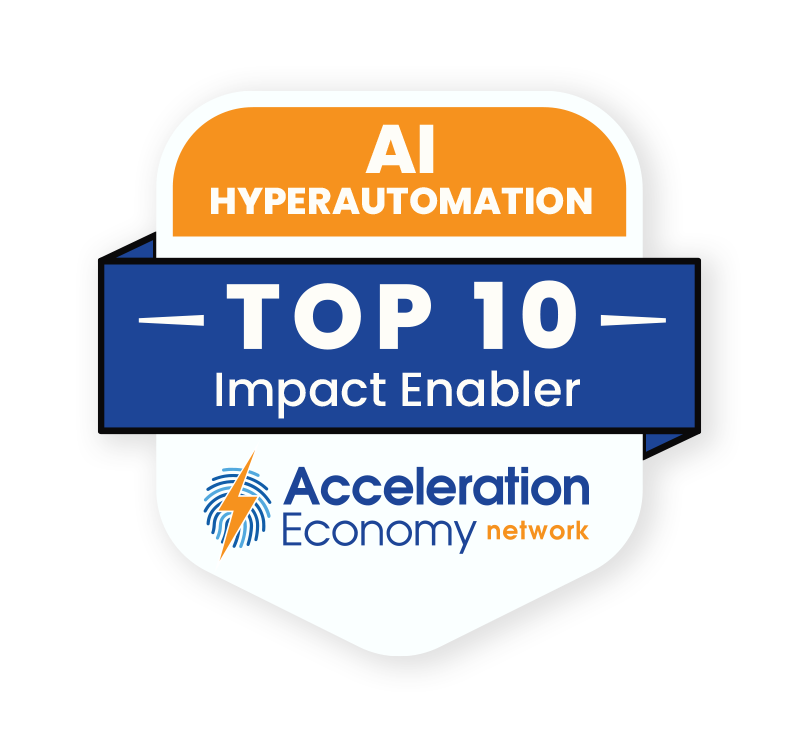Welcome to the AI Index Report, featuring practitioner analyst and entrepreneur Toni Witt. This series is intended to deliver the timely intelligence you need to get up to speed for an upcoming client engagement or board meeting.
Highlights
Innovation (00:33)

Recently, there have been many announcements about finance firms adopting generative AI:
- A recent Gartner report found that nearly half of banking executives, surveyed in February, said they had no plans to incorporate generative AI into their business. That figure plummeted to 7% in April, as 17% said they’re already implementing the technology, up 7% from February. “The industry is picking it up now,” Toni notes.
- Morgan Stanley is working with OpenAI to develop a tool that offers insights into its advisors using GPT-4.
- JP Morgan Chase submitted a trademark application for an AI-based program called “IndexGPT,” which focuses on analyzing and recommending investments directly to customers.
- Goldman Sachs has also been looking into large language models (LLMs) for internal use cases. For instance, it uses this technology to examine a company’s financials and documents to determine if it complies with specific regulations. The technology will automatically generate ideas and strategies to help the client.
While these internal use cases are taking off in this industry, finance is still very high stakes. “We can’t have mis-generated results or hallucinations” where programs “spit out random things that aren’t necessarily true,” Toni raises.
This can be fatal in an industry that’s highly regulated, which is why keeping humans in the loop is critical, especially in the early stages. It’s also why explainability is so important. Toni explains, “It’s about ensuring high data quality, proper training techniques, potentially even having an AI governance team or using frameworks to guide your implementation.”

Which companies are the most important vendors in AI and hyperautomation? Check out the Acceleration Economy AI/Hyperautomation Top 10 Shortlist.
Startup Funding and M&A (03:14)

Startup Resistant AI raised an additional $11 million in an extended Series A, bringing its total funding to $27.6 million. The startup provides a high-level overview of its AI security platform for finance firms.
There are two core aspects to Resistant AI:
- It analyzes documents for forgery using computer vision
- It catches fraud in buy-now-pay-later systems and analyzes anti-money laundering systems through anomaly detection
Resistant AI aims to use these funds to grow its product, team, and global presence.
When Toni attended the MoneyLIVE North America conference, a key topic was fraud in the age of synthetic media. “They’ve realized they need to fight fire with fire — solving generative AI-enabled fraud problems with generative AI or other AI, whether that’s anomaly detection or other techniques to combat those new emerging problems,” Toni says.
Product of the Week (05:25)

eBay launched a new set of generative AI tools designed for sellers to automatically generate text for the item descriptions that they sell on the marketplace. This helps eBay sellers cut down on the time and effort required to list those items.
- eBay tracked a measurable increase in conversion rates on certain items that were given generated descriptions and images.
- As this has been helpful for eBay, it holds potential for a variety of marketplaces. In the early days of Airbnb, the company hired photographers enabling hosts to have high-quality photos of their rentals to increase conversions because people felt more safe knowing where they were staying. For example, hosts could upload a video of the rental and use generative AI to produce professional images.
- Eddie Garcia, eBay’s Chief Product Officer (CPO), has mentioned cars being sold on eBay, so they’re experimenting with using generative AI to preview modifications of the specific cars being sold. This increases conversions and improves the customer experience.
This is just the beginning of bringing generative AI into e-commerce.











